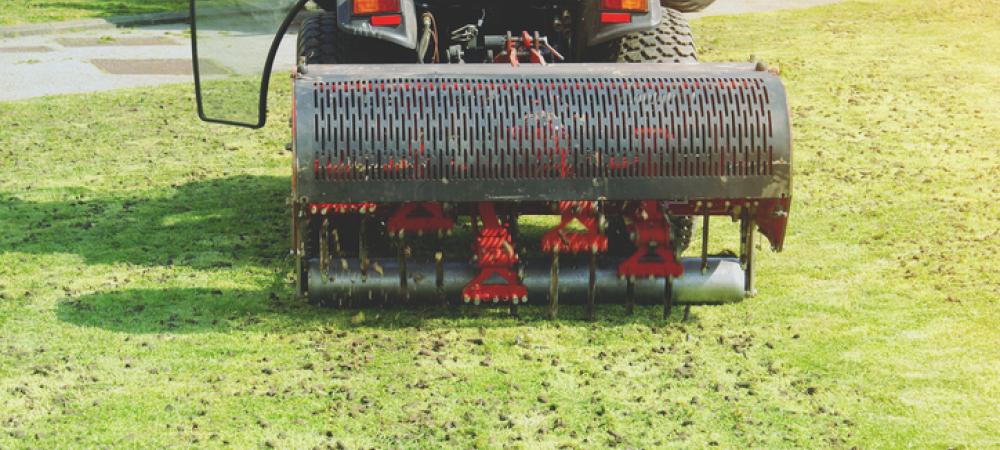Dealing with Compacted Soil: A Guide for North Carolina Homeowners

Soil compaction is a hidden yet significant problem that can prevent your lawn from thriving. For North Carolina homeowners, this issue often emerges after periods of heavy rain or extended droughts, leaving the soil dense, hard, and inhospitable to grass roots. Recognizing, preventing, and alleviating soil compaction is essential for maintaining a lush, healthy lawn. In this guide, we’ll explore the causes and signs of soil compaction and share actionable tips to restore your lawn to its full potential.
What Is Soil Compaction and Why Does It Matter?
Compacted soil occurs when soil particles are pressed together tightly, reducing the spaces between them. These tiny spaces are critical for air circulation, water drainage, and root growth. Without them, your grass struggles to absorb nutrients, leading to weak, patchy, or thinning lawns. For homeowners in North Carolina, soil compaction is often caused by:
- Frequent foot traffic (e.g., kids playing or pets running in the yard)
- Heavy equipment usage, such as lawnmowers or construction vehicles
- Excess rainfall, which packs down soil particles
- Prolonged drought, where the ground becomes hard and crusty over time
Recognizing the Signs of Soil Compaction
Compacted soil can often go unnoticed until the health of your lawn declines. Look for these signs:
- Poor water absorption: Water pools on the surface instead of soaking into the ground.
- Difficulty digging: Compacted soil feels hard and resists shovels or garden tools.
- Thinning grass: Your grass looks sparse, even with proper watering and fertilization.
- Increased weeds and moss: Compacted soil provides an ideal environment for invasive plants to thrive.
- Bald spots: Grass struggles to grow in heavily compacted areas, leaving patches of bare soil.
How to Prevent Soil Compaction
Prevention is key to avoiding the costly and time-consuming task of reversing soil compaction. Follow these tips to keep your lawn healthy:
- Aerate regularly: Aeration introduces small holes into the soil, allowing air, water, and nutrients to penetrate. Aim to aerate at least once a year, particularly in the fall or spring.
- Limit traffic: Redirect foot traffic away from vulnerable areas or use stepping stones to minimize pressure on the soil.
- Use organic matter: Adding compost or organic mulch can improve soil structure over time.
- Mow carefully: Avoid mowing when the soil is overly wet, as this can lead to compaction.
Methods to Alleviate Compacted Soil
If your lawn is already suffering from soil compaction, don’t worry. There are effective solutions to revive it.
1. Aeration Core aeration is one of the most effective methods to relieve compacted soil. By removing small plugs of soil, aeration creates pathways for air, water, and nutrients to reach the roots. It’s best to hire professionals to ensure thorough coverage and optimal timing.
2. Topdressing: After aeration, applying a layer of organic topdressing can help improve the soil’s texture and nutrient content.
3. Overseeding Compacted soil often results in thin or bare patches. Over-seeding after aeration helps new grass fill these areas and encourages thicker growth.
4. Avoid Overwatering While it might seem counterintuitive, overwatering can exacerbate compaction. Water deeply but less frequently to maintain a healthy balance.
5. Address High-Traffic Areas Install pathways or ground covers in areas that experience constant foot traffic. These alternatives can reduce the pressure on your lawn.
The Benefits of Aeration for North Carolina Lawns
For homeowners in North Carolina cities like Holly Springs, where soil compaction is common, regular aeration offers numerous benefits:
- Healthier roots: Grass can grow deeper, stronger roots when air and nutrients penetrate the soil.
- Improved drainage: Aeration prevents waterlogging, reducing the risk of fungal diseases.
- Thicker, greener grass: Aeration promotes healthier, more uniform growth across your lawn.
For more tips on preventing lawn damage during drought conditions, check out this helpful guide.
Why Trust Triangle Lawn Care?
At Triangle Lawn Care, we specialize in creating beautiful, resilient lawns through expert aeration, seeding, fertilization, and weed control. While we don’t offer mowing services, our tailored solutions are designed to enhance your lawn's long-term health and appearance. Whether you’re in Holly Springs or surrounding North Carolina communities, our team is here to provide the care your lawn deserves. Learn more about our Holly Springs Lawn Care.
Contact Triangle Lawn Care Today
Don’t let compacted soil ruin the health and beauty of your lawn. Triangle Lawn Care is here to help you restore your yard with professional aeration, fertilization, and seeding services. Contact us today to schedule an evaluation and take the first step toward a thriving, vibrant lawn. Your lawn’s transformation starts with us!
